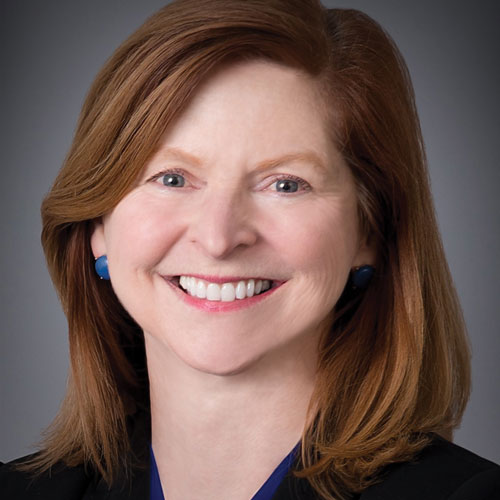Over the last 20 years, nonsufficient funds (“NSF”) fees and overdraft (“OD”) fees have generated a significant amount of non-interest income at many financial institutions – both large and small. Indeed, the Consumer Financial Protection Bureau (“CFPB”) recently noted that, in 2019, financial institutions realized more than $15.4 billion in revenue from NSF and OD fees, while account maintenance fees only contributed approximately $1 billion.
Although NSF/OD fees have generated substantial revenue, they have come at a cost. With various deposit account services (e.g., overdraft payment programs) and internal banking practices (e.g., debit card approval policies, transaction posting orders, etc.), these fees have attracted attention from banking regulators, public interest groups, and lawyers representing consumers. Predictably, these groups have been critical of these fees in general and of bank services and internal banking practices that enhance OD fee income in particular.
Class action litigation against financial institutions has resulted in the payment of settlements that collectively exceed $1 billion. Whereas the targets of this costly litigation were once mainly institutions holding billions of dollars in assets, in recent times, institutions of every size have been targeted. In fact, many of the readers of this article will have either personally dealt with such litigation (or threats of such litigation) or will know someone who has.
Class action litigation against financial institutions has resulted in the payment of settlements that collectively exceed $1 billion. Whereas the targets of this costly litigation were once mainly institutions holding billions of dollars in assets, in recent times, institutions of every size have been targeted. In fact, many of the readers of this article will have either personally dealt with such litigation (or threats of such litigation) or will know someone who has. Unfortunately, these cases (or threats to sue unless settlements are paid) are unlikely to stop.
At the same time, financial institutions have had to deal with ever-evolving regulatory requirements. Historically, although various regulatory reforms have impacted NSF/OD fee income, they have been manageable and have not been existential threats. More recently, however, there have been signs that profound reforms are on the horizon.
Notably, Dec. 1, 2021, the CFPB released two research reports analyzing the revenue generated by OD fees. On that same day, the CFPB’s director, Rohit Chopra, issued prepared remarks commenting on the research reports and announcing three steps being taken by the CFPB:
Director Chopra announced that CFPB will take action against any “large financial institutions” violating the law in relation to OD fees. Moreover, Director Chopra noted that the CFPB will also work to reveal the identities of any individuals who directed any illegal activity. Relatedly, Director Chopra stated that the CFPB is considering additional policy guidance outlining unlawful practices.
CFPB’s examiners are being directed to prioritize examinations of banks that are “heavily reliant on overdraft.” Director Chopra noted that such institutions can expect “close supervisory attention.”
“CFPB will be looking to harness technology in ways that give American families the power to more easily fire poor-performing banks.” This step will be intended to make it easier for consumers to move their deposit accounts from one bank to another, including mitigating much of the hassle associated with opening new bank accounts (e.g., obtaining new debit cards, updating direct deposits, etc.).
More recently, Jan. 26, 2022, CFPB published a notice requesting public comments with respect to consumer “fees that are not subject to competitive processes that ensure fair pricing.” CFPB characterized such fees as “junk fees.” Examples of these junk fees included NSF fees, OD fees, credit card late fees, “convenience fees” for making payments by telephone or online, and various fees related to residential mortgage loans, among others. The deadline to submit comments is March 31, 2022. Comments “will serve to assist the CFPB and policymakers in exercising its enforcement, supervision, regulatory, and other authorities to create fairer, more transparent, and competitive consumer financial markets.”
Although most West Virginia banks are not regulated by the CFPB, they have the power to amend a host of federal regulations that are binding on every West Virginia bank. And changes to CFPB’s supervisory and examination practices could influence the CFPB’s fellow federal banking regulators to make similar changes to their practices.
Unsurprisingly, before and after Director Chopra’s Dec. 1, 2021, public statement, many banks announced dramatic changes regarding their NSF/OD policies and practices. Although changes made by the largest banks (e.g., Bank of America, Chase, Wells Fargo, Truist) have received the most attention, many regional and smaller banks have also announced dramatic changes in their NSF/OD policies and practices. These changes range from eliminating NSF and/or OD fees altogether to providing consumers with grace periods to eliminate any overdraft before charging an OD fee.
Financial institutions should carefully review their NSF/OD policies and practices, including whether they are overly dependent on income from NSF and OD fees. Likewise, institutions should carefully consider changes to their NSF/OD policies and practices, including the possibility of eliminating NSF fees, reducing the amounts of OD fees, and providing customers with grace periods to eliminate any overdrafts before any OD fee is assessed.
At a minimum, every financial institution should carefully review its standard account disclosures and consider whether the disclosures accurately reflect their policies and procedures concerning the NSF/OD fees and any internal institutional processes that impact ODs.
Profound changes are coming in terms of regulatory expectations vis-à-vis NSF/OD fees. Banks cannot prevent these changes, but they can plan for the inevitable and potentially mitigate the impact of change.

Sandra M. Murphy is a partner with Bowles Rice LLP and serves as leader of the firm’s Banking and Financial Services practice group. She focuses her practice on acquisition, regulatory, enforcement, corporate governance and securities law matters for banks and other financial institutions

Floyd Boone, also a partner with Bowles Rice, focuses his practice on advising financial institutions in regulatory compliance and litigation. He is a member of the firm’s Banking and Financial Services practice group and leads the firm’s Financial Services Litigation group.
Both Ms. Murphy and Mr. Boone have extensive experience defending and advising financial institutions against regulatory and litigation threats relating to NSF/OD policies and procedures. Mr. Boone has been defending and advising financial institutions in these areas since 2006. Please feel free to contact Ms. Murphy at (304) 347-1131 or Mr. Boone at (304) 347-1733 for more information.










